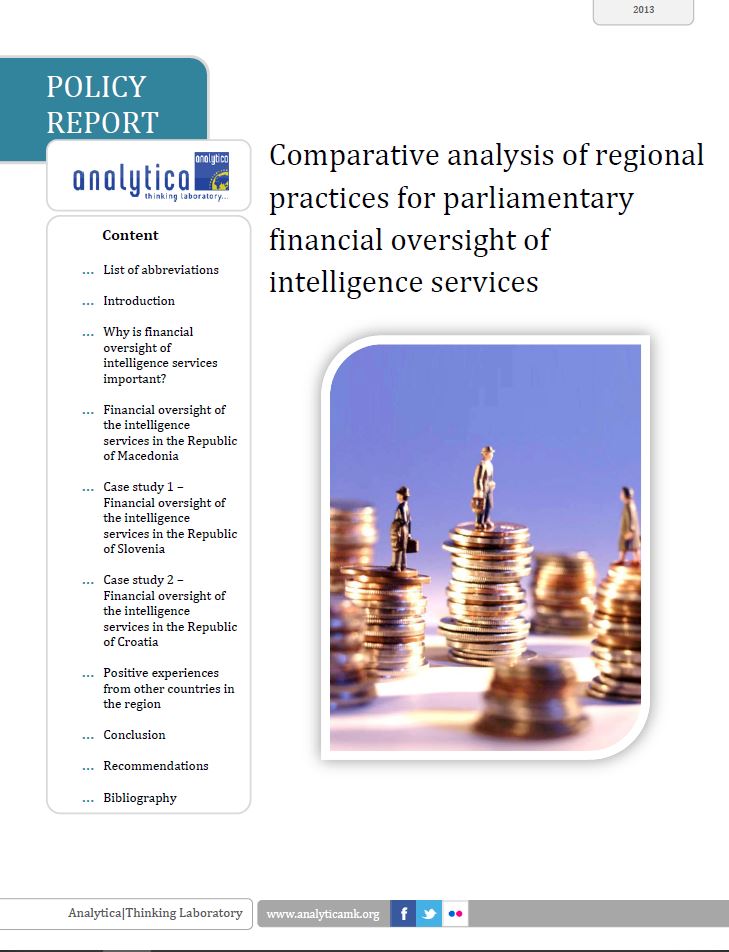Comparative Analysis of Regional Practices for Parliamentary Financial Oversight of Intelligence Services
Comparative Analysis of Regional Practices for Parliamentary Financial Oversight of Intelligence Services
Author(s): Magdalena Lembovska
Subject(s): Governance, Security and defense, Public Finances, Fiscal Politics / Budgeting, Accounting - Business Administration, Corruption - Transparency - Anti-Corruption
Published by: Аналитика Тинк-тенк Организација
Keywords: North Macedonia; intelligence services; state budget; public finances; intelligence service expenditures; financial accountability; transparency; parliamentary financial oversight; auditing; legal framework; approval of financial resources;
Summary/Abstract: This paper will give an account of the mechanisms available to the Macedonian Parliament to conduct parliamentary oversight of the intelligence services, particularly those within the jurisdiction of the specialized parliamentary committees. It will then examine cases from other states in the region and look for practices and legal solutions that they have established in order to encourage financial accountability of their intelligence services. As former Yugoslav republics, during the last two decades these states were facing the challenges of transition and building democratic, transparent and accountable institutions. However, not all of them have progressed at the same pace. The best practices are elaborated in two case-studies – Slovenia and Croatia, both members of the European Union. Furthermore, their oversight systems differ at many levels, having been created and developed according to each country’s specific processes and needs. They should serve as examples to better understand the role of parliaments in ensuring the accountability of intelligence services in the implementation of programs and projects financed with state money. Thereby, the case-study sections provide a brief overview of the formal intelligence services and authorized bodies for their oversight. The focus is put on the role of the parliament (directly or indirectly through parliamentary committees) throughout the four phases of the budgetary cycle: planning, adoption, implementation and audit.
Series: ANALYTICA - Policy Reports
- Page Count: 35
- Publication Year: 2013
- Language: English
- Content File-PDF

